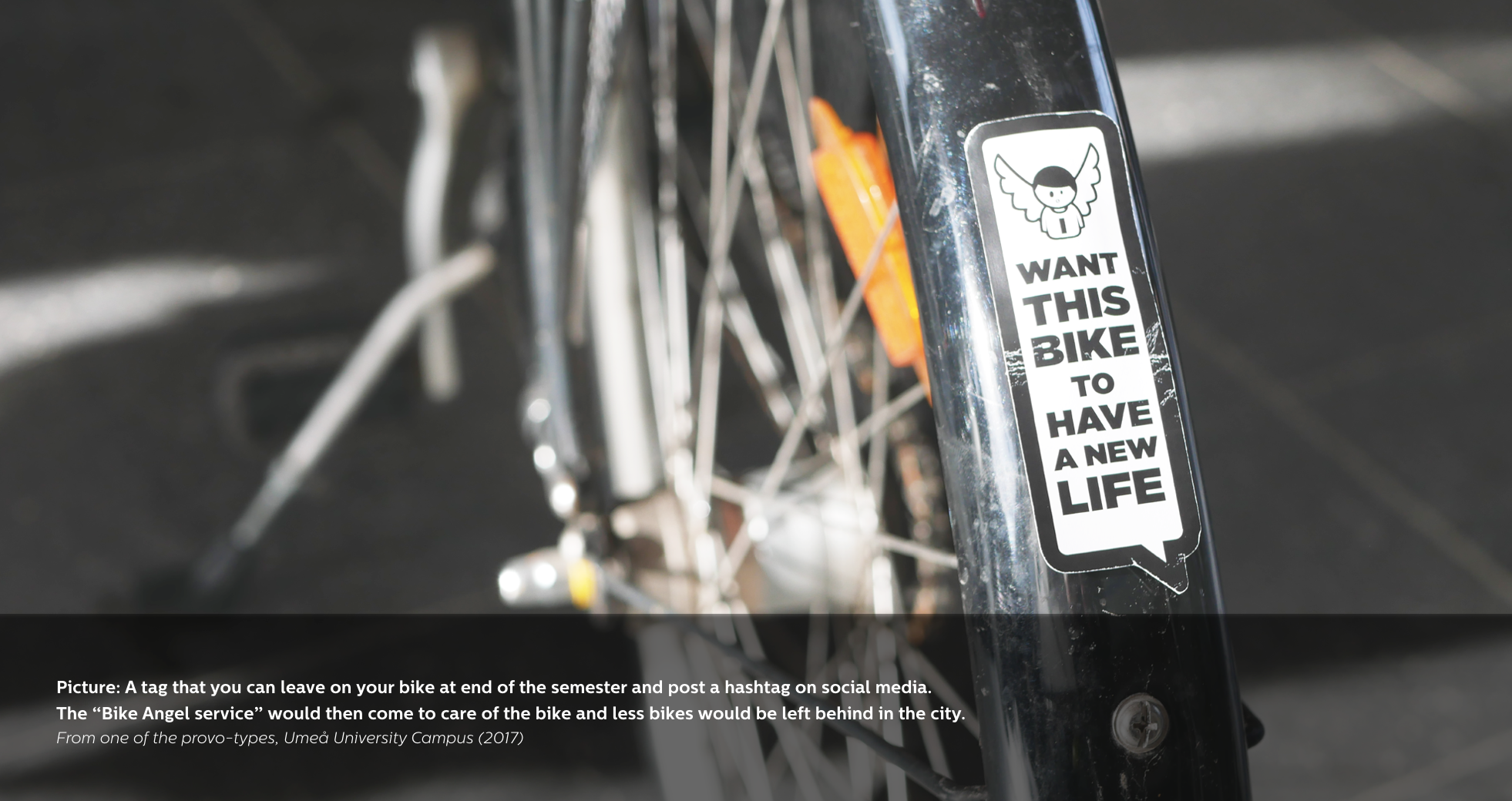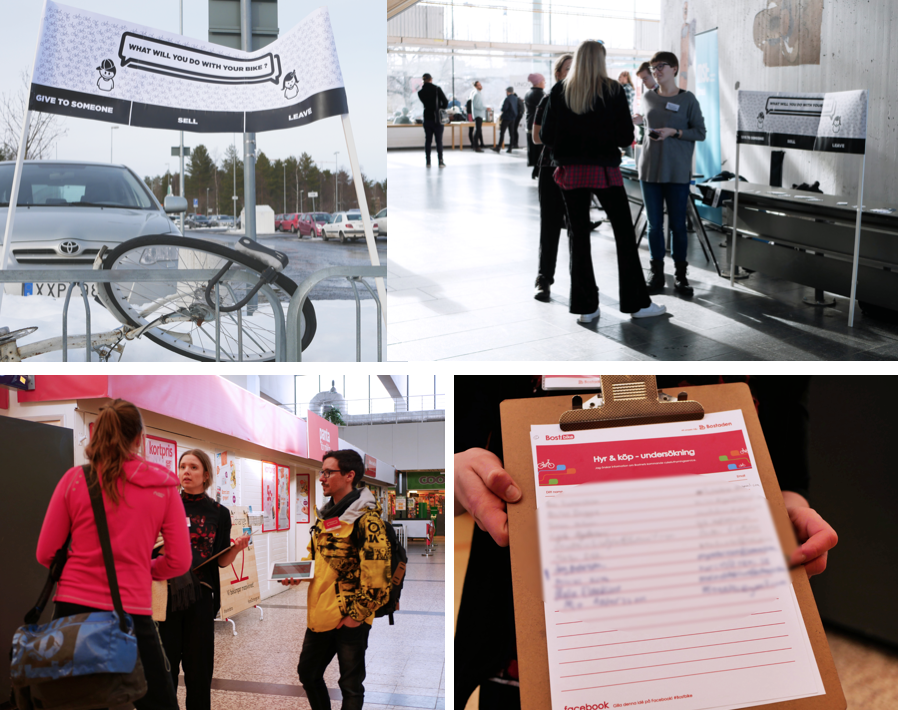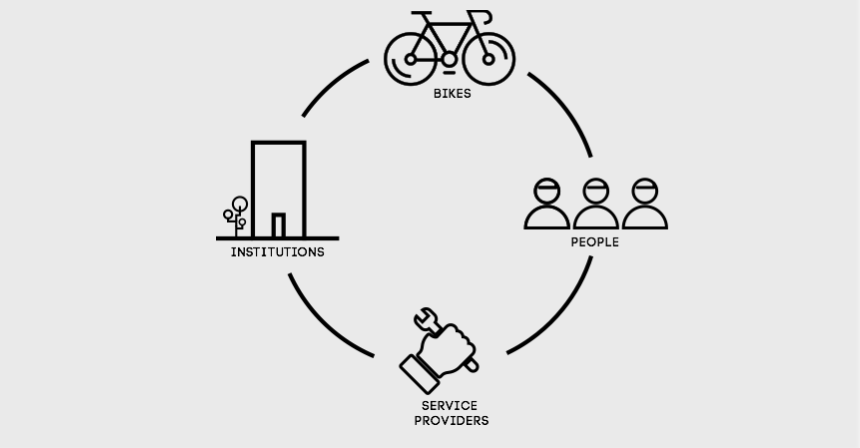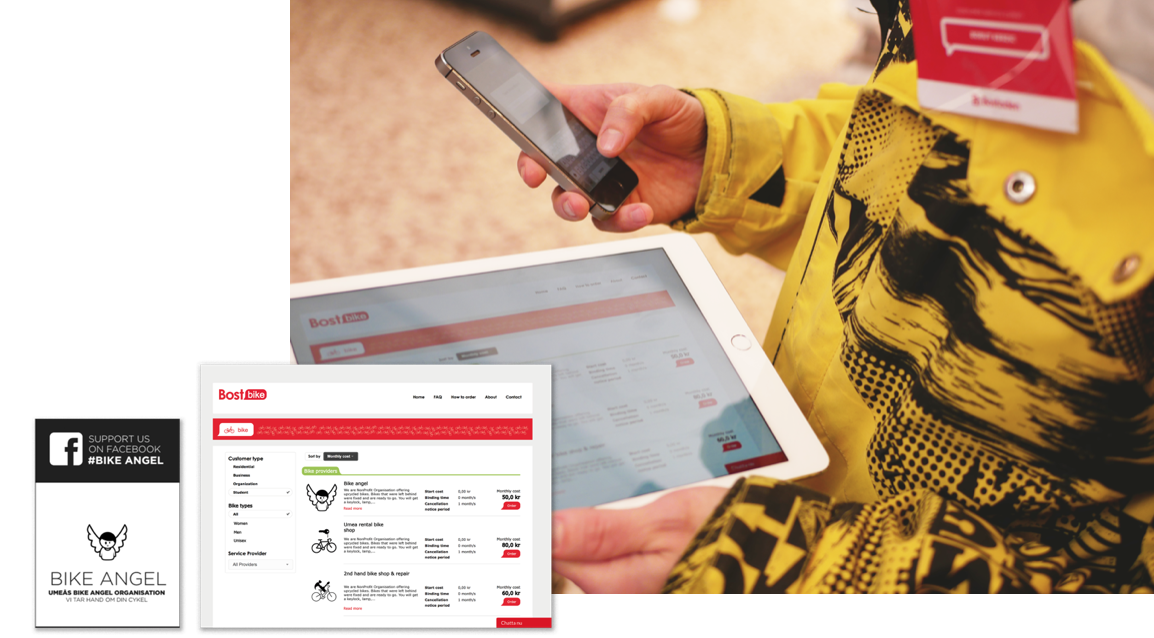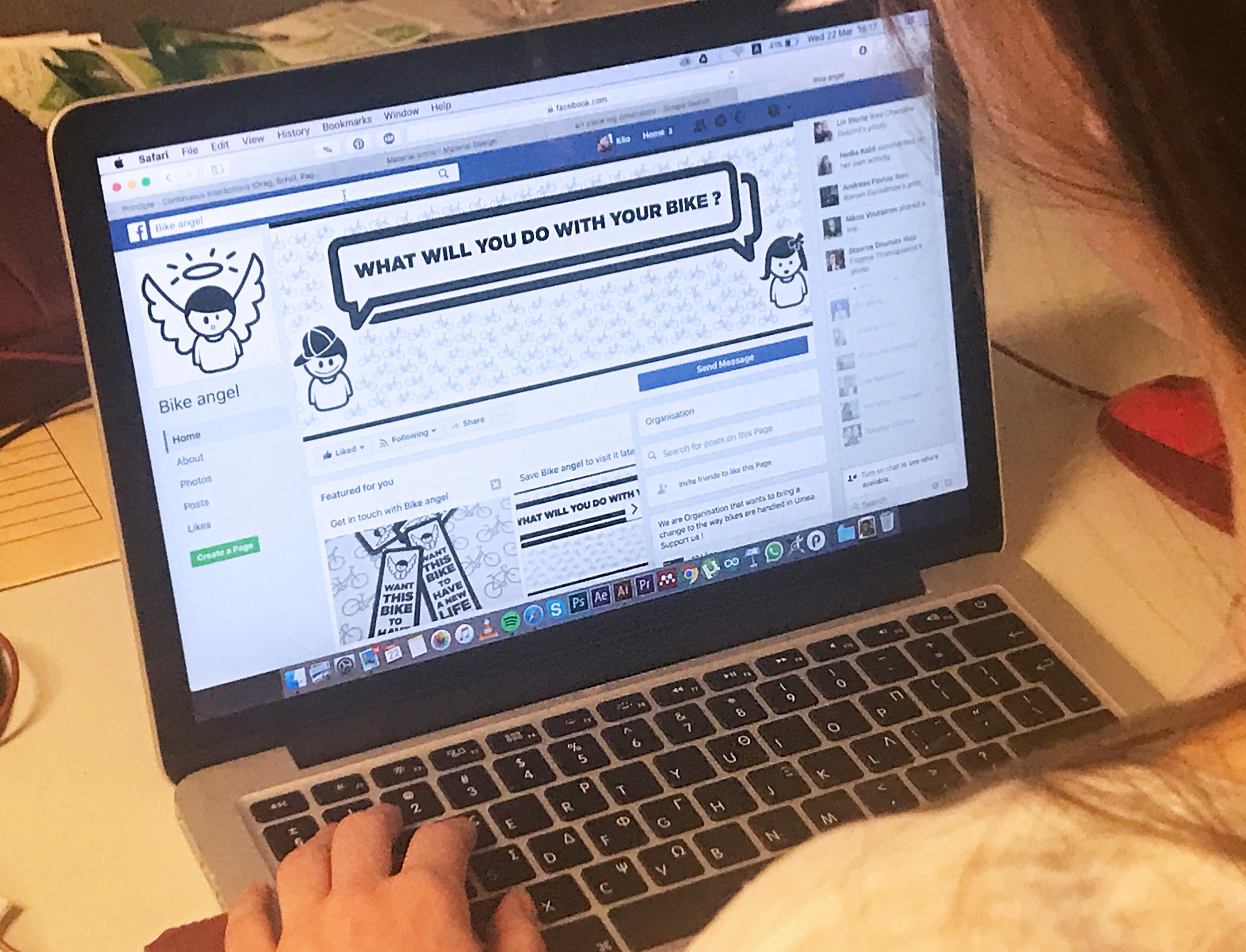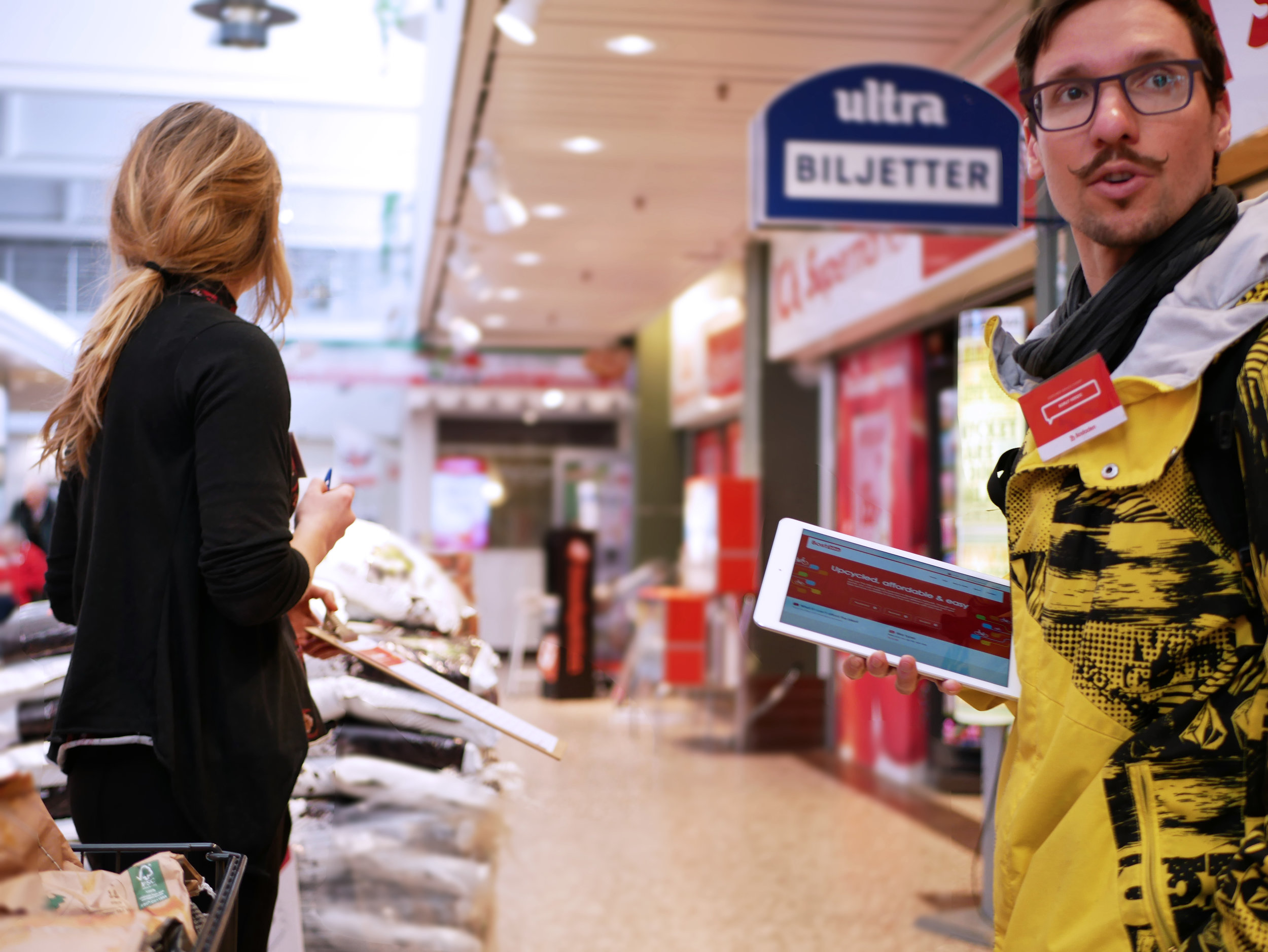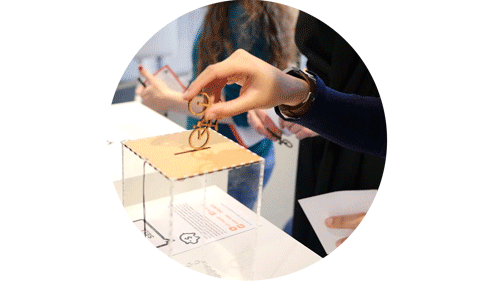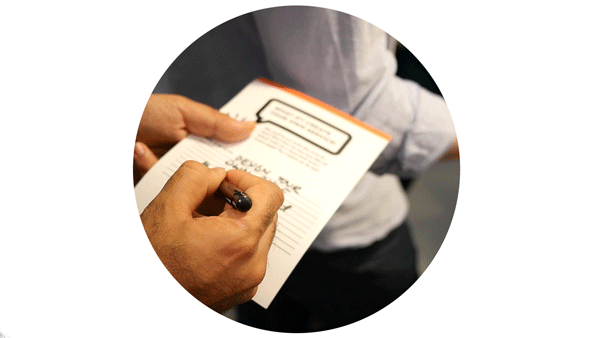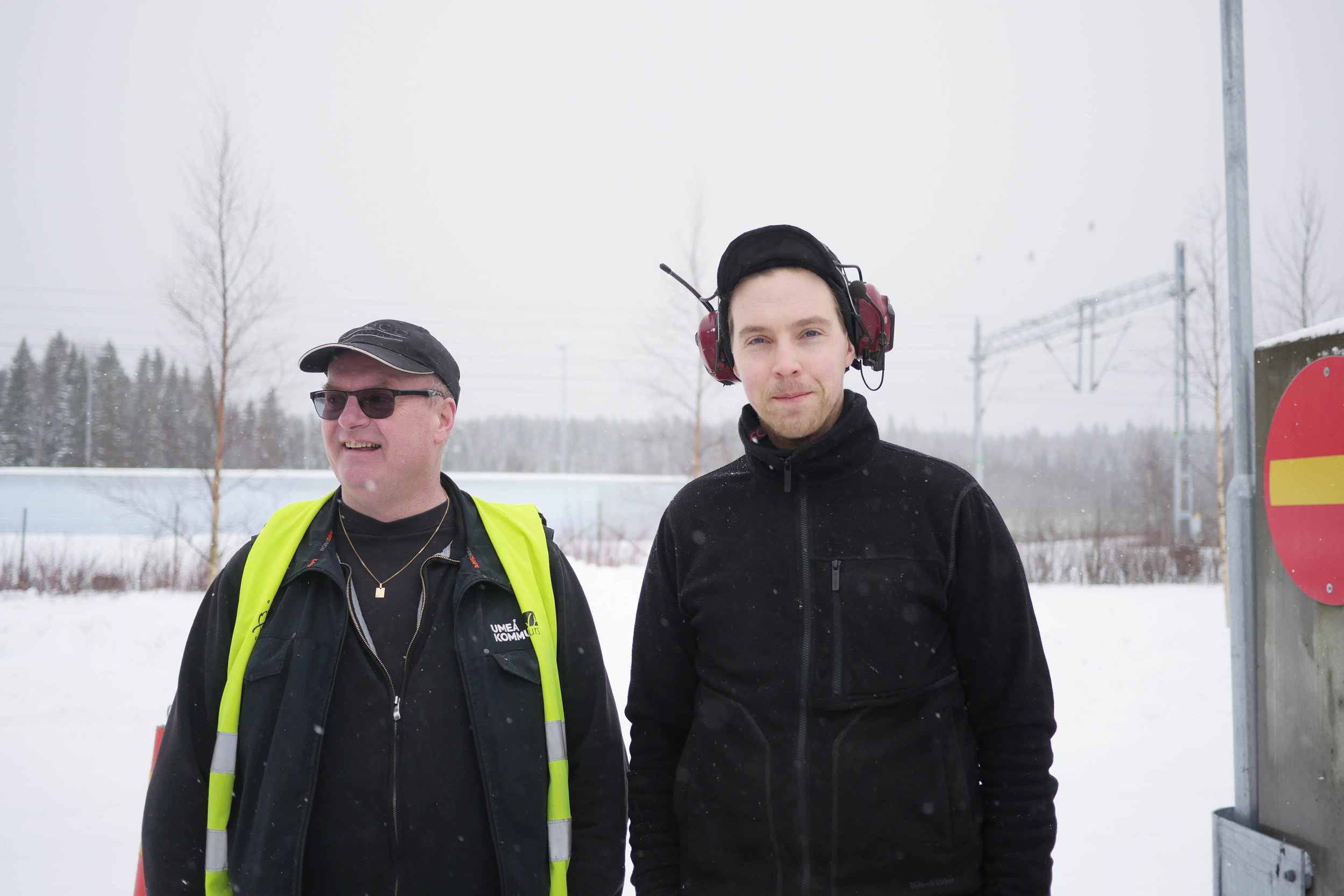CIRCULAR BIKE ECONOMY. EXPLORING BIKING IN CO-CREATIVE PRACTISES.
How can we create shared urban mobility systems?
This project was done in cooperation with the municipality of Umeå. We were given the task to design an exhibition for co-creation and apply critical design-thinking. Throughout the whole design process we iterated and staged a service for the public with different probes and provo-types.
While exploring urban mobility in the city of Umeå, which tensions could be found in the society? How could these tensions be addressed to bring awareness to better mobility?
Our team chose the notion of second hand market of biking. We staged a service around the city, and used the snowball technique of interviews and field studies to gain insights of the needs. The results suggests a circular design economy as the solution to a wasteful and inefficient system.
The final outcome is a interactive exhibition, which was displayed for the public and our stakeholders through the use of interactive prototypes.
TEAM
Nicole Waniowska, Borut Kerzic (Interaction Design)
SKILLS / TOOLS
Co-creation, Circular design mapping, Service interventions, Arduino, Sound Design, Graphical elements, Exhibition
PROJECT TIME
5 weeks, with aim of staging an interactive exhibition
Concept Video
The exhibition
TRY TO GET RID OF A BIKE
In the first experience, participants were given a bike and a persona, based on real life people and events we encountered in our user research around Umeå city.
WATCH OUR SUGGESTED SOLUTION
The visitors were then given the chance to watch our circular design service suggestions in short explanatory videos.
REVIEW STATION
At the last station the visitors could review our created services, or create their own.
A circular bike economy
TODAY VERSUS TOMORROW
The bike process
ETHNOGRAPHIC FIELDWORK / PROBLEMS WITH THE CURRENT BIKE SYSTEM
We started with the technique of snowballing, where one personal interview around biking led us in to a personal context to another, from bike organisation to bike organisation.
These narratives where tracing us through the complex system of buying, repairing, keeping, selling, recycling and disposing bikes in Umeå. We visited bike shops, repair shops, the police station, recycle stations, NGOs, Umeå University Campus, and real estate owners.
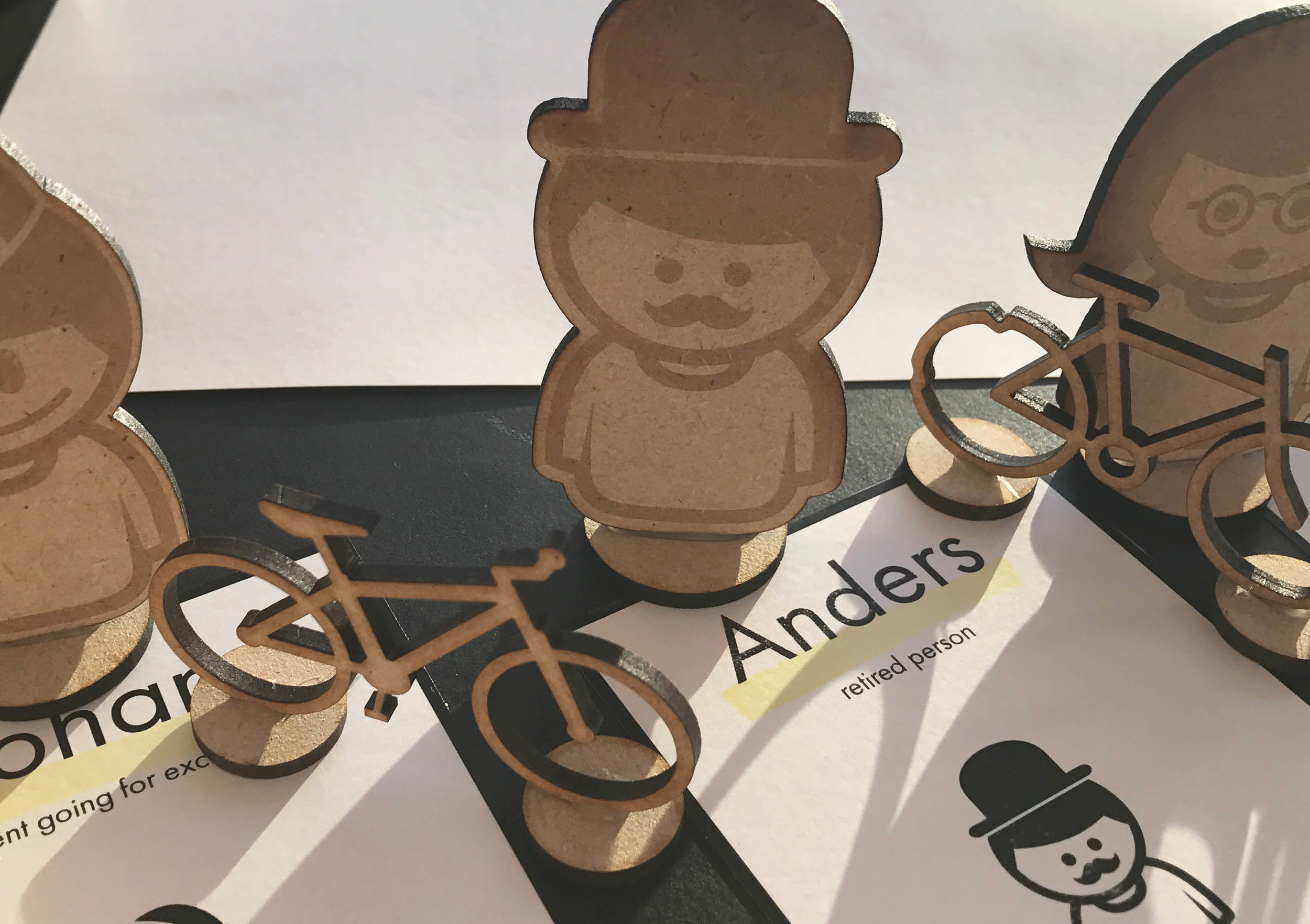



THE IMPOSSIBLE GAME / CO-CREATIVE WORKSHOP
To understand how people would react to our research, we staged a co-creative session. Our ethnographic insights had led us to a system of bikes and subsequent problems, and now we wanted to test if people would be aware of the issues in a game setting.
In the game you we given a persona and a bike. Your task was to get rid of it, and as the truth is today in Umea, it is very hard. When you saw no way out and you tried all the stations we had given our colleagues roles as "the saving angels" as in bike NGO:s.
Highlighting the invisible NGO:s, not part of the official system.

